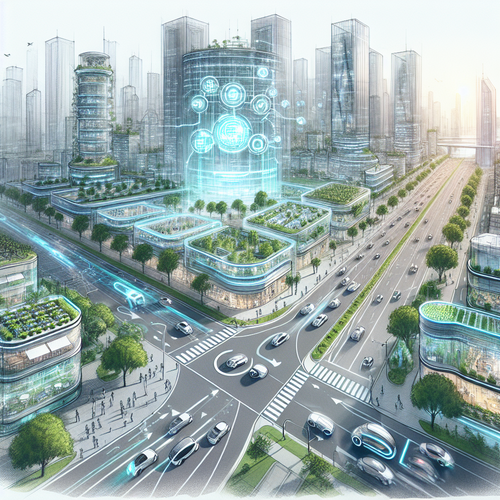
Unlocking the Future: AI in Smart Transportation
Unlocking the Future: AI in Smart Transportation
As cities grow and the population surges, smart transportation is becoming a key focus for urban planners and technologists alike. The integration of Artificial Intelligence (AI) into transportation systems is revolutionizing how we move within urban environments. This article delves into the exciting innovations and the future potential of AI in smart transportation.
What is Smart Transportation?
Smart transportation involves the use of advanced technologies to improve the efficiency of transportation systems. It encompasses a wide array of technologies, including AI, IoT, big data, and connectivity improvements in vehicles.
How AI is Driving Smart Transportation
- Traffic Management: AI algorithms analyze real-time traffic data to optimize traffic signals, reduce congestion, and enhance overall traffic flow.
- Autonomous Vehicles: AI powers self-driving cars, significantly reducing accidents caused by human error while complying with real-time traffic rules and conditions.
- Public Transportation: AI improves the efficiency of public transport systems by predicting passenger demand and optimizing routes based on real-time data.
Enhancing Safety and Security
One of the most significant contributions of AI in smart transportation is its ability to enhance safety. AI-powered systems can detect anomalies in travel patterns or hazardous conditions far more efficiently than human monitoring. For instance, AI can recognize potential accidents by analyzing data from various sources, including cameras and sensors, and alerting emergency services instantly. This proactive approach to safety can significantly reduce response times and ultimately save lives.
Environmental Impact
AI in transportation also plays a crucial role in sustainability. Smart systems can optimize routes for fuel efficiency, reducing carbon footprints. Additionally, AI can support electric vehicle infrastructure by managing charging station availability and energy distribution, further reinforcing the transition to greener transportation options.
Challenges Ahead
Despite the promising advancements in AI for smart transportation, several challenges persist. Data privacy concerns, high costs of infrastructure, and the need for robust cybersecurity measures are critical areas that require attention. Furthermore, integrating AI solutions across various modes of transport can be complex and necessitates substantial collaboration between government bodies and private sectors.
The Future is Bright
As technology continues to evolve, the future of smart transportation driven by AI looks promising. Cities worldwide are increasingly adopting smart transportation solutions, backed by AI, to tackle the unique challenges posed by urban mobility.
In conclusion, the integration of AI in smart transportation not only enhances efficiency and safety but also paves the way for a sustainable future. For additional insights into AI applications, check out our post on the impact of AI on financial services.
Conclusion
The ongoing advancements in AI technology are crucial to developing smarter, safer, and more sustainable transportation systems. While challenges exist, the positive impact of AI on urban mobility cannot be overstated. As we continue to innovate and break down barriers, we will unlock the full potential of smart transportation, ultimately benefiting everyone in urban environments.













